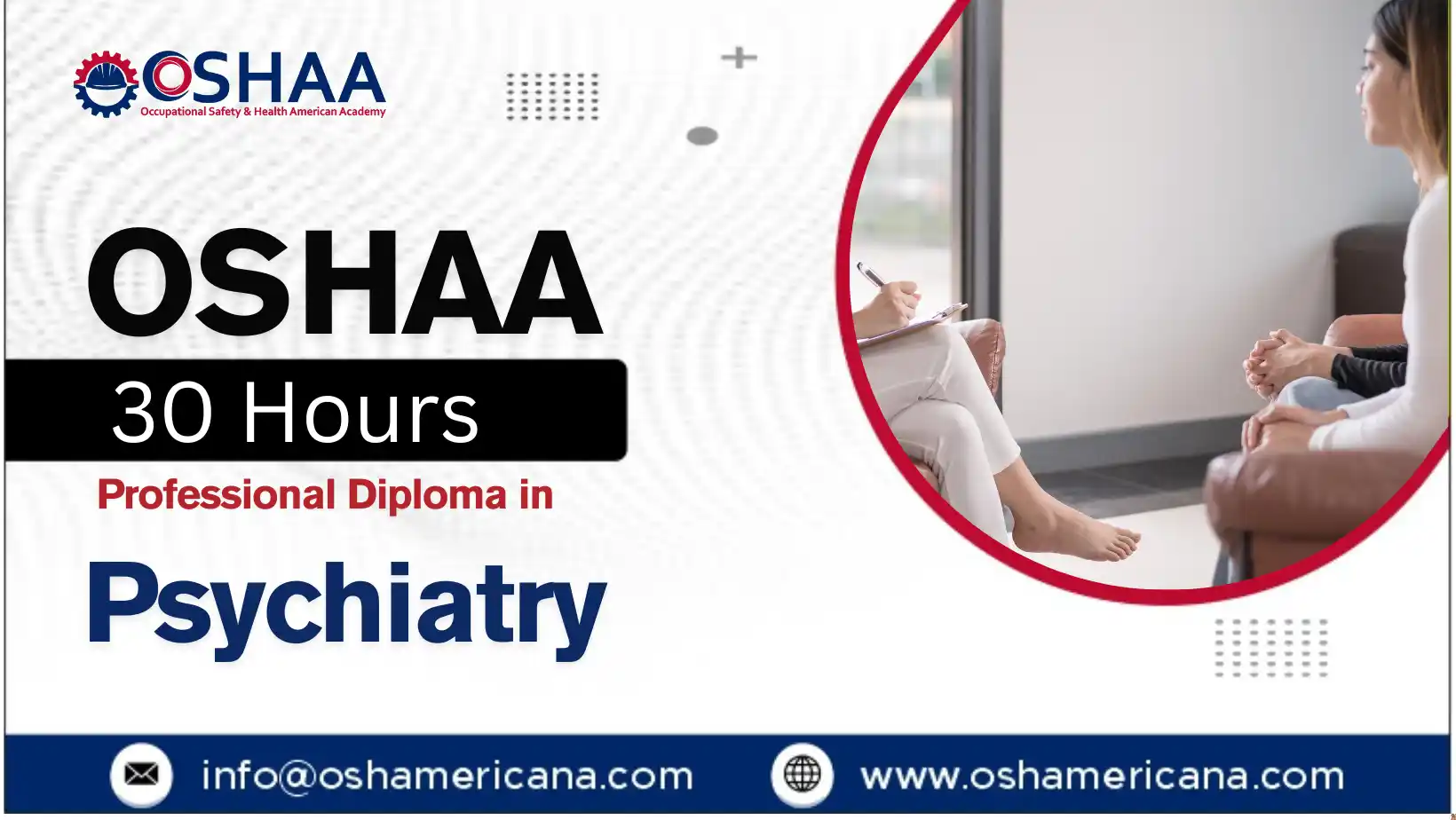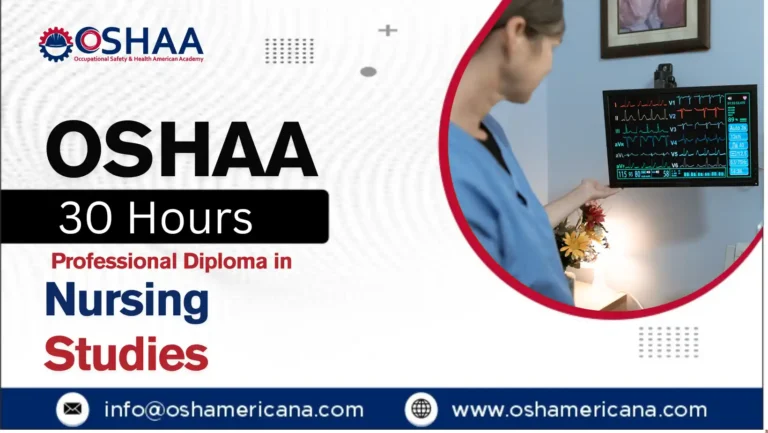The OSHAA 30-Hours Professional Diploma in Psychiatry is a comprehensive programme tailored for individuals seeking to expand their foundational knowledge and practical understanding of psychiatric principles and mental health care. Developed in alignment with UK professional standards, this diploma provides participants with essential insights into the diagnosis, treatment, and management of a wide range of mental health disorders.
Psychiatry plays a crucial role in modern healthcare, addressing complex mental health needs across diverse populations. This diploma equips participants with a structured overview of key psychiatric conditions, including mood disorders, anxiety disorders, psychotic disorders, and personality disorders. It also explores the biological, psychological, and social frameworks that underpin psychiatric diagnosis and intervention.
Participants will engage with core psychiatric theories, learn how to conduct mental status examinations, and become familiar with commonly used diagnostic tools such as the DSM-5 and ICD-11. The course also includes practical instruction on treatment approaches, from psychopharmacology to therapeutic communication, ensuring participants are prepared to support individuals across a range of clinical and community settings.
Designed for those who want to play a meaningful role in mental health provision, this diploma offers a valuable stepping stone into the field of psychiatry. Whether working directly with patients, supporting mental health initiatives, or continuing into advanced training, participants will benefit from a well-rounded and professionally recognised qualification.
OSHAA 30-Hours Professional Diploma in Psychiatry
Study Units
Learning Outcomes
Introduction to Psychiatry and Mental Health Systems (3 Hours)
- Understand the scope and role of psychiatry within modern healthcare systems
- Identify the major classifications of mental health disorders
- Recognise the structure of mental health services and referral pathways
Neurobiology and Psychological Foundations of Mental Disorders (4 Hours)
- Explain key neurobiological mechanisms contributing to mental illness
- Explore psychological theories underpinning the development of psychiatric conditions
- Understand the interplay between genetic, environmental, and cognitive factors
Psychiatric Assessment and Mental Status Examination (3 Hours)
- Conduct a structured psychiatric history and mental status examination
- Identify signs and symptoms associated with various mental disorders
- Utilise clinical tools and frameworks for accurate diagnosis and risk assessment
Mood Disorders: Diagnosis and Management (4 Hours)
- Differentiate between depressive and bipolar disorders using diagnostic criteria
- Recognise clinical features and risk factors associated with mood disorders
- Apply evidence-based approaches to managing and supporting individuals with mood disorders
Anxiety Disorders and Related Conditions (6 Hours)
- Understand the spectrum of anxiety disorders including GAD, panic disorder, and phobias
- Identify physiological and psychological symptoms of anxiety
- Implement therapeutic strategies for the assessment and treatment of anxiety disorders
Psychotic Disorders: Schizophrenia and Other Psychoses (4 Hours)
- Recognise the hallmark symptoms of schizophrenia and related psychotic disorders
- Understand the impact of psychosis on functioning and quality of life
- Apply clinical approaches for early intervention, treatment, and recovery support
Personality Disorders and Behavioural Issues (3 Hours)
- Define the key characteristics of personality disorders based on recognised criteria
- Understand behavioural patterns and challenges associated with each disorder
- Explore therapeutic frameworks for long-term behavioural change and support
Psychopharmacology: Medications in Psychiatry (3 Hours)
- Identify commonly prescribed psychiatric medications and their mechanisms of action
- Understand indications, side effects, and contraindications of psychotropic drugs
- Support medication adherence and monitor therapeutic outcomes within clinical practice
Course Benefits of the OSHAA 30-Hours Professional Diploma in Psychiatry
- Equips participants with a solid foundation in the principles and practices of modern psychiatry
- Enhances knowledge of mental health disorders, including their symptoms, causes, and treatments
- Develops practical skills in psychiatric assessment and mental status examination
- Provides a clear understanding of psychopharmacology and the use of medications in mental health care
- Strengthens awareness of ethical, legal, and safeguarding considerations within psychiatric practice
- Prepares participants to communicate effectively with individuals experiencing mental health challenges
- Encourages the application of evidence-based approaches to support patient-centred care
- Supports professional development for those working in healthcare, social care, or community settings
- Facilitates career progression in mental health services, counselling, and allied healthcare roles
- Offers a recognised qualification that demonstrates commitment to mental health education and advocacy
The OSHAA 30-Hours Professional Diploma in Psychiatry is designed for participants seeking to develop a comprehensive understanding of psychiatric concepts and clinical practice. This course is ideal for:
- Healthcare professionals aiming to strengthen their knowledge of mental health and psychiatric care
- Counsellors, support workers, and care staff working with individuals experiencing mental illness
- Psychology graduates or trainees interested in pursuing careers in psychiatry or mental health services
- Social workers and allied professionals supporting individuals with complex behavioural or emotional needs
- Individuals involved in community mental health initiatives or wellbeing programmes
- Anyone with a professional interest in understanding psychiatric conditions and contributing to mental health awareness
This diploma provides participants with the essential tools and knowledge to contribute meaningfully to mental health support services across a range of clinical and community-based settings.







